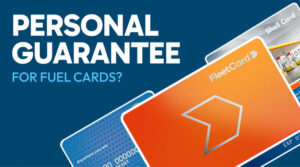The accounting needs of small businesses are unique and present unique challenges for small business owners. It is nobody’s favourite topic but it is crucial to minimise revenue leakage, missed growth or cost-saving opportunities, and fraud prevention. Accounting software will help you stay on top of your invoices, track unpaid sales, and also communicate your profitability potential to your investors. So let’s first go over some top areas of concern that small businesses should consider carefully when setting up its accounting system before exploring the best small business accounting tools.
1. Cash flow
54 per cent of small business owners experience cashflow uncertainty and are losing sleep over it, with over 30% have more than $20,000 in outstanding receivables. Trying to track all the payment obligations and prepare for them takes time and mental toll. Earmark funds to cover recurring costs and constantly analyze your daily, weekly costs to minimise excess.
2. Expense tracking
As your company starts to grow, it becomes more challenging to manage various employee expenses to ensure that they are in compliance with the company policies and it’ll be harder to be on top of your inventory management. Most small business accounting is done manually, which inevitably will lead to a lot of items falling through the cracks.
3. Reconciliation of your books
Reconciling books is annoying and tedious but it will help with reducing revenue leakage, taking full advantage of any available government tax deductions, and avoiding mistakes leading to being audited. This is a good habit to form which wouldn’t be as hard with the proper accounting system.
4. Financial data analysis
Beyond just preparing the financial reports, many small businesses struggle with identifying the data needed for growth, data entry and collection, and applying the interpretations/analyses of such important financial data. Doing this exercise manually would be unwise as automation is key in ensuring your data is accurate; plenty of financial management software solutions offer guidance and add-on features that help you start gathering data on your customers, sales trends, expense trends, etc. to help you streamline your operations and maximize profitability. So what are the best accounting software solutions for your business? We created a high-level comparative view for you!
1. Free Accounting Software
Overview:
Free Accounting Software is a simple accounting software for micro businesses to help track sales, purchase orders, and payroll records. It’s appropriate for a small business with 4 or fewer employees with limited transaction volume. There is a version you can upgrade to, called BAS OFF, which offers cloud accounting services.
Key Features:
- Accounts Payable & Receivable
- Payroll
- General Ledger
- Online accounting
- Customisable PDF documents
Price:
- Free
2. QuickBooks Online
Overview:
QuickBooks is probably one of the most popular accounting tools globally. Intuit’s cloud accounting system uses the QuickBooks brand. It has more automated and customisable features than Free Accounting Software and offers its services in different bundles to cater to the diverse needs of small business owners.
Key Features:
- Automated Bank Account Feeds and Integration with Other Apps
- Invoice Customisation
- Automated Receipt Scan/Capture
- Purchase Order Generation
- More Payment Methods Accepted (PayPal, credit cards, etc.)
- Financial Report Generation
Price:
- Simple Start (payroll for up to 4 staff): $10.50/mo
- Essentials (payroll for up to 7 staff & 3 users): $21.00/mo
- Plus (payroll for up to 10 staff & 5 users): $28.00/mo
3. MYOB
Overview:
Once Australia’s most dominant small business accounting system, MYOB is still leading the charge in sophisticated features even with the basic version and most accounting services or professionals know how to use MYOB. It was slow to transition to the cloud but has done so smoothly.
Key Features:
- Simple One-Click Quote/Invoice Generator
- Automated Bank Account and Credit Card feeds
- Accepting Credit Card/BPAY Payments From Clients via Emailed Invoice
- Real-time Tracking of Profit and Loss
- Single Touch Payroll Obligations
Price:
- Accounting Starter (up to 5 invoices, 5 bills, and 25 bank feed transactions per month): $27.00/mo
- Accounting (Unlimited invoices, bills, bank feeds): $48.00/mo
- Accounting + Payroll (Unlimited Payroll and STP reporting): $30.00/mo
4. Xero Online
Overview:
Relatively a newer yet now a powerful player, Xero has gained its popularity due to its ‘cloud-native’ credentials and a decentralised platform with seamlessly integrated third-party apps. It has the best UI with smart workflows that is reflected in their pricing. It has been voted as #1 accounting software by Canstar Blue.
Key Features:
- Single Touch Payroll
- Automated Bank Account, Credit Card, and Paypal Feeds Import & Categorisation
- Invoice Activity and Inventory Updates
- 700+ Third-Party Apps
- Custom Purchase Orders
- (Batch) Payment Scheduling
Price:
- Starter (up to 5 invoices, 5 bills, and 25 bank reconciliations + payroll for 1 staff): $25.00/mo
- Standard (Unlimited invoices, bills, bank feeds + payroll for 2 staff): $50.00/mo
- Premium 5 (Payroll for 5 people + automated superannuation): $50.00/mo


